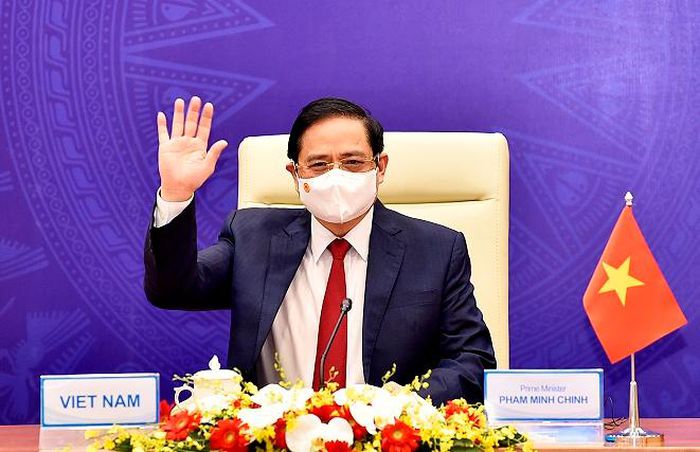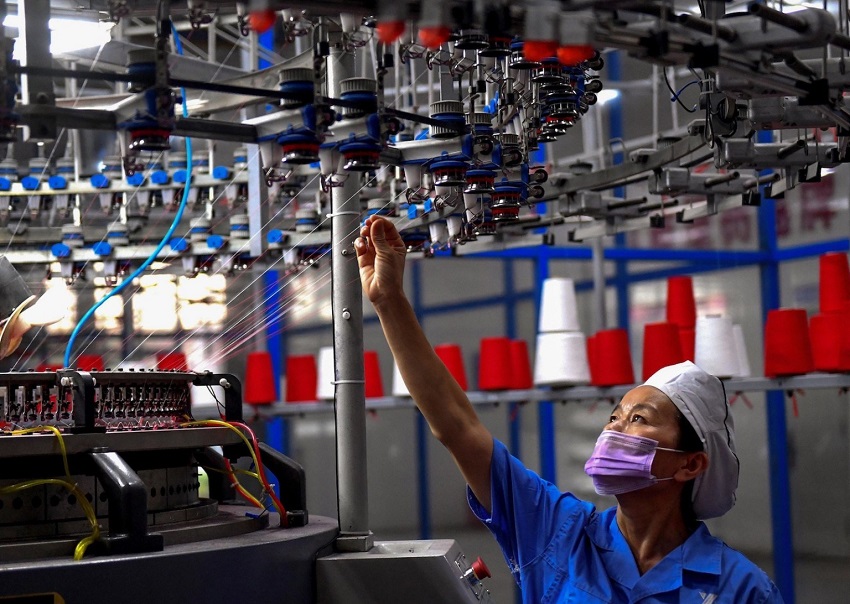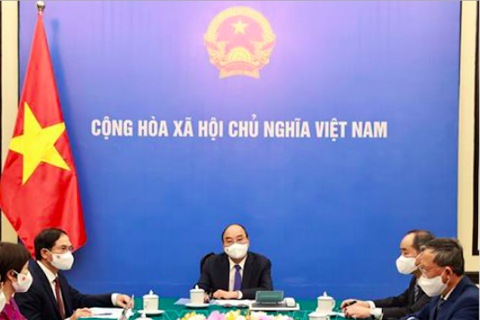Transnational trade and investment: Key to post-Covid recovery in Asia
Vietnam highlighted the importance of supply chain and joint efforts in implementing trade pacts.
Vietnam’s Prime Minister Pham Minh Chinh stressed at Nikkei’s Future of Asia conference that intra- inter-regional trade and investment are key to the recovery in Asia.
| Vietnam's Prime Minister Pham Minh Chinh at the conference. Photo: VGP |
“The post-Covid recovery of Asia will be largely dependent on its ability to maintain intra- and inter-regional trade investment,” Nikkei Asia quoted Chinh as saying at the morning session of the first day in the two-day event.
Speaking at the session titled “Shaping the post-Covid era: Asia’s role in the global recovery” on May 20, Chinh emphasized the importance of trade pacts that help promote regional economic links in a stronger connectivity manner.
He said international trade deals like the Comprehensive and Progressive Agreement for Trans-Pacific Partnership (CPTPP) and the Regional Comprehensive Economic Partnership (RCEP) “will help to accelerate the regional economic recovery and development process.”
In his remarks, Chinh urged countries to “set aside differences and disagreements” to fight Covid-19.
“The top priority now is to secure the supply of vaccines, ensure fair and timely access, while also reducing intellectual property rights barriers and accelerating the transfer of technologies for vaccine production,” he said.
Vietnam, one of few countries posting positive economic growth in the face of Covid-19 pandemic in 2020, is pursuing the dual goals of growing the economy and containing the virus.
In 2020, its effective countermeasures allowed the economy to grow 2.9%.
He said at the meeting that Vietnam “is ready to share its experience” in fighting Covid-19, but it also seeks to “continue receiving the support and assistance from all countries in this endeavor, especially in terms of research and production and equal access to vaccines.”
At the conference, the Vietnamese PM suggested measures for the regional recovery plans, including (1) developing infrastructure for short-term economic growth and long-term strategies; (2) promoting fair and integrated economic for smooth global supply chain; (3) intensifying cooperation to make digital transformation momentum for Asia in post-Covid era; (4) boosting sustainable development; (5) making joint efforts in Covid-19 response and improving public health care for future medical challenges; and (6) ensuring peace and stability for the post-Covid era.
| A textile factory in Vietnam. Photo: AFP |
South China Sea issues
Regarding the regional issues, Chinh called for boosting trade and maintaining peace in the South China Sea, stressing the importance of stability in the crucial waterway for global commerce.
“We must address all the issues and differences by peaceful solutions [and] fully observe the laws,” especially the United Nations charter and the 1982 UN Convention on the Law of the Sea (UNCLOS), he said.
“We need to bring into full play the multilateral cooperation mechanisms, implement fully and effectively the [Declaration of Conduct] and work closely in the effective negotiations for the [Code of Conduct] to be soon concluded. We also need to maintain peace, cooperation and development in the region, freedom of navigation, and overflight in the South China Sea.”
The code would set rules for countries’ activities in the South China Sea, but talks have deadlocked for years. China is reluctant to limit its activities, including building islands and performing military drills, while Southeast Asia wants to include external parties like the US, Nikkei Asia reported.
The Future of Asia is an international gathering where political, economic and academic leaders from the Asia-Pacific region offer their opinions frankly and freely on regional issues and the role of Asia in the world. Held by Nikkei Inc. every year since 1995 (it has been canceled due to the new coronavirus pandemic last year), it is considered one of the most important global conferences in Asia.














